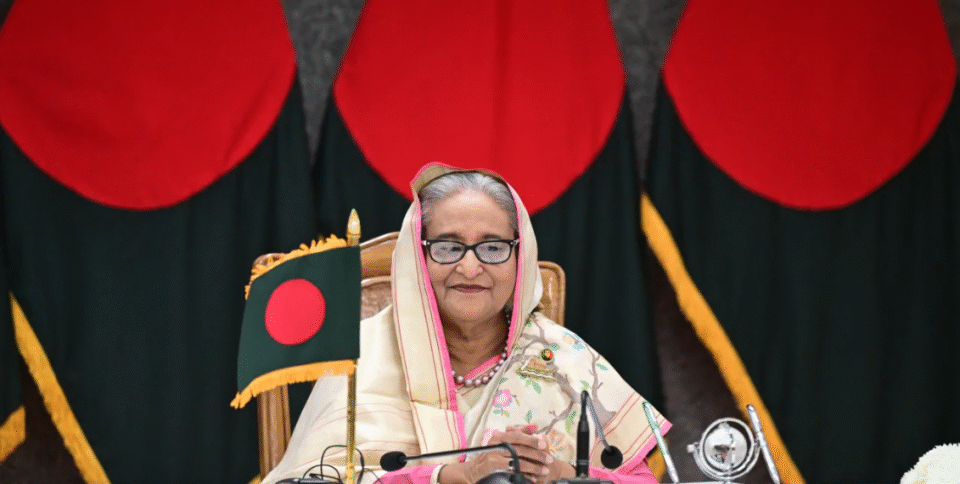Kolkata, Aug 11: Former Bangladesh Prime Minister Sheikh Hasina, who fled to India after her government was toppled in a student-led uprising last year, has reportedly established a discreet Awami League party office in Kolkata, according to a BBC Bangla report.
Hasina, who left Bangladesh on August 5, 2024, following weeks of mass protests that claimed several lives and reshaped the country’s political landscape, is said to be living near New Delhi. Meanwhile, senior and mid-level leaders of her Awami League party and affiliated organisations have settled in Kolkata, where they have been holding regular meetings.
From Informal Gatherings to a Permanent Base
Initially, party discussions were hosted at private residences in Kolkata or in restaurants and rented banquet halls. Now, with the allocation of a 500–600 sq ft commercial office space, future meetings are expected to be held there.
The office is intentionally discreet — with no signboards, portraits of Hasina, or images of Bangladesh’s founding president Sheikh Mujibur Rahman — to avoid drawing attention. “We needed a private space for regular meetings, and this commercial property was ideal. The furniture here was left by previous tenants,” one senior Awami League leader told BBC Bangla.
Indian Authorities Aware of the Move
According to the report, the existence of the office is known to Indian intelligence agencies and is believed to have received clearance from India’s Ministry of Home Affairs.
Political Turmoil and Upcoming Elections
The 2024 uprising ousted Hasina’s government and brought Nobel laureate Muhammad Yunus to lead an interim administration. Bangladesh’s Election Commission has announced that national elections will be held before Ramadan in February 2026.
Facing Trial Back Home
Hasina is currently facing charges of crimes against humanity in Bangladesh, including allegations of ordering, inciting, conspiring, and abetting murder, torture, and other inhuman acts. The trial is being conducted by Bangladesh’s International Crimes Tribunal — a court Hasina herself established during her tenure as prime minister.
If convicted, the former leader could face life imprisonment or even the death penalty.


Trump Blasts India-Russia Ties: ‘They Can Take Their Dead Economies Down Together’